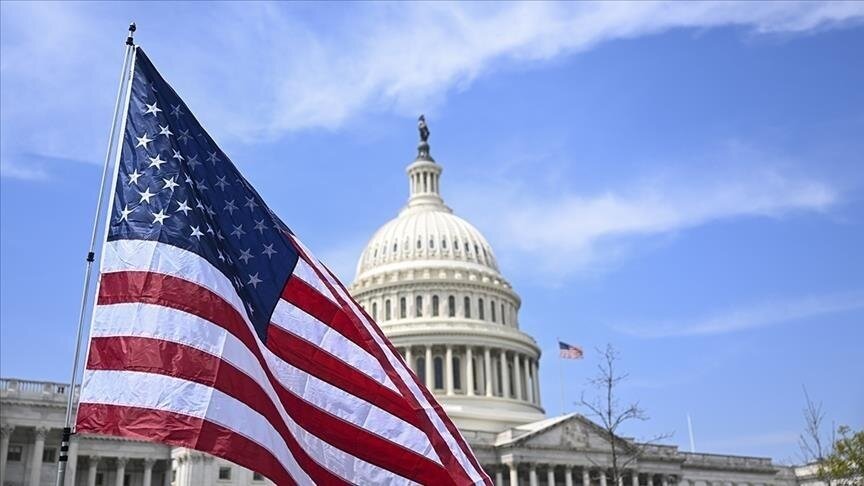AhlulBayt News Agency: The Unites States announced on Friday fresh sanctions targeting Iran’s ballistic missile and drone procurement programs.
In a statement on Friday, the U.S. Treasury Department said that it had imposed sanctions on four Iran- and Hong Kong-based companies allegedly involved in providing materials and technology to Iran’s ballistic missile and drone programs as well as a Hong Kong-based firm for selling Iranian commodities to Chinese entities.
The Treasury also noted that it imposed sanctions on six officials of Iran’s Islamic Revolution Guard Corp’s Cyber Electronic Command (IRGC-CEC) for so-called malicious cyber activities against critical infrastructure in the United States and elsewhere.
It published their names as Hamid Reza Lashgarian, Mahdi Lashgarian, Hamid Homayunfal, Milad Mansuri, Mohammad Bagher Shirinkar, and Reza Mohammad Amin Saberian.
“The Treasury’s Office of Foreign Assets Control (OFAC) sanctioned the key procurement network of suppliers of materials and sensitive technology for Iran’s ballistic missile and drone programs, including the Shahed-series UAV produced by Iran’s Shahed Aviation Industries Research Center (SAIRC),” the statement read.
On the same day, OFAC designated four entities that have allegedly functioned as covert procurement intermediaries for Hamed Dehghan and Pishtazan Kavosh Gostar Boshra (PKGB), both OFAC-designated individuals actively supporting various Iranian military organizations, including the IRGC.
Additionally, OFAC also designated another Hong Kong-based front company allegedly involved in selling hundreds of millions of dollars worth of Iranian commodities.
During a meeting with a large group of producers and businesspersons on Tuesday, Leader of the Islamic Revolution Ayatollah Seyyed Ali Khamenei referred to the fully effective capacity and capability of the private sector to achieve macroeconomic goals.
Ayatollah Khamenei emphasized the importance of government support in terms of tackling obstacles in the business environment and highlighted the responsibility of the private sector as a crucial factor for improving the overall situation and driving substantial progress in the country.
While referring to limiting issues such as sanctions, the Leader noted, "The effort and progress of the private sector, despite such obstacles, makes one hopeful that this sector can propel Iran towards the desired growth outlined in the seventh five-year plan, i.e., an 8 percent economic growth."
The Leader of the Islamic Revolution acknowledged that the support provided by governments worldwide plays a pivotal role in the success of prominent corporations and businesses.
Speaking about the presence of foreign problems such as sanctions and hostilities of ill-wishers, he remarked, "While these situations are undoubtedly detrimental and pose problems for the country, they can also be used as opportunities, in the same way, that our youth took advantage of these circumstances, leading to the acquisition of military weapons and remarkable scientific accomplishments such as advancements in the field of space and the successful launch of satellites like the Soraya satellite. If it were not for the sanctions, we would not have attained these achievements today."
/129
In a statement on Friday, the U.S. Treasury Department said that it had imposed sanctions on four Iran- and Hong Kong-based companies allegedly involved in providing materials and technology to Iran’s ballistic missile and drone programs as well as a Hong Kong-based firm for selling Iranian commodities to Chinese entities.
The Treasury also noted that it imposed sanctions on six officials of Iran’s Islamic Revolution Guard Corp’s Cyber Electronic Command (IRGC-CEC) for so-called malicious cyber activities against critical infrastructure in the United States and elsewhere.
It published their names as Hamid Reza Lashgarian, Mahdi Lashgarian, Hamid Homayunfal, Milad Mansuri, Mohammad Bagher Shirinkar, and Reza Mohammad Amin Saberian.
“The Treasury’s Office of Foreign Assets Control (OFAC) sanctioned the key procurement network of suppliers of materials and sensitive technology for Iran’s ballistic missile and drone programs, including the Shahed-series UAV produced by Iran’s Shahed Aviation Industries Research Center (SAIRC),” the statement read.
On the same day, OFAC designated four entities that have allegedly functioned as covert procurement intermediaries for Hamed Dehghan and Pishtazan Kavosh Gostar Boshra (PKGB), both OFAC-designated individuals actively supporting various Iranian military organizations, including the IRGC.
Additionally, OFAC also designated another Hong Kong-based front company allegedly involved in selling hundreds of millions of dollars worth of Iranian commodities.
During a meeting with a large group of producers and businesspersons on Tuesday, Leader of the Islamic Revolution Ayatollah Seyyed Ali Khamenei referred to the fully effective capacity and capability of the private sector to achieve macroeconomic goals.
Ayatollah Khamenei emphasized the importance of government support in terms of tackling obstacles in the business environment and highlighted the responsibility of the private sector as a crucial factor for improving the overall situation and driving substantial progress in the country.
While referring to limiting issues such as sanctions, the Leader noted, "The effort and progress of the private sector, despite such obstacles, makes one hopeful that this sector can propel Iran towards the desired growth outlined in the seventh five-year plan, i.e., an 8 percent economic growth."
The Leader of the Islamic Revolution acknowledged that the support provided by governments worldwide plays a pivotal role in the success of prominent corporations and businesses.
Speaking about the presence of foreign problems such as sanctions and hostilities of ill-wishers, he remarked, "While these situations are undoubtedly detrimental and pose problems for the country, they can also be used as opportunities, in the same way, that our youth took advantage of these circumstances, leading to the acquisition of military weapons and remarkable scientific accomplishments such as advancements in the field of space and the successful launch of satellites like the Soraya satellite. If it were not for the sanctions, we would not have attained these achievements today."
/129

